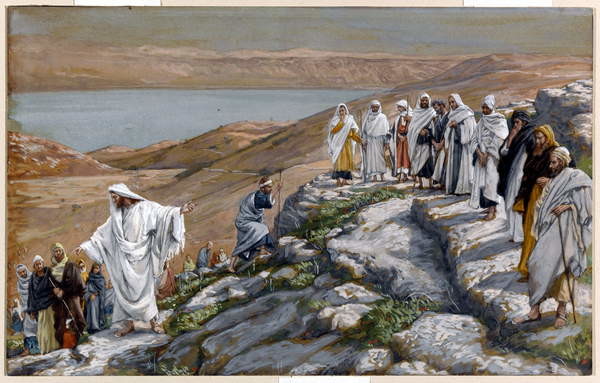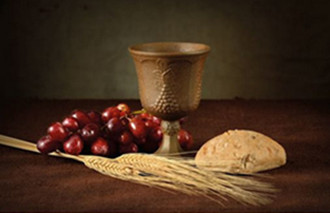 |
14th Sunday in Ordinary Time C
Readings: Isaiah 66:1‑14 Galatians 6:14‑18 Luke 10:1‑12,17‑20
"Let all the earth cry out to God with joy!" (Ps 66). The refrain from this Sunday's responsorial psalm invites the whole of creation to celebrate the Lord's mighty deeds. As we hear the promise of the Lord's restoration of Jerusalem in the Book of Isaiah and the success of the seventy‑two disciples' mission in Luke’s Gospel, let us celebrate that the Christian message is gospel, “good news,” of the Lord's victory through Christ over the forces of evil and death.
The Isaiah reading is filled with loving maternal images proclaiming the Lord's care for the Babylonian exiles who are returning to Jerusalem. It begins with an invitation to rejoice over Jerusalem which is personified as a mother who will now nurse her children. “Exult, exult with her,/ all you who were mourning over her! Oh, that you may suck fully of the milk of her comfort,/ that you may nurse with delight at her abundant breasts!” The foundation for this joy is the Lord's promise to restore the city, like a mother comforting her children, and care for the exiles who return to her. “As nurslings, you shall be carried in her arms, and fondled in her lap;/ As a mother comforts her son, so will I comfort you;/ in Jerusalem you shall find your comfort.”
In the second reading Paul concludes Galatians with a summary of the chief points of the letter. He has had to defend his status as an apostle against his opponents at Galatia who were advocating the circumcision of Gentile converts. Now Paul asserts that his only boast is in "the cross of our Lord Jesus Christ" which he contrasts with circumcision. The cross, not circumcision, has defeated the power of sin and begun the process by which the world will be "created anew." Paul concludes by demanding, "Henceforth, let no one trouble me, for I bear the brand marks (stigmata) of Jesus in my body." In contrast to his opponents who boasted of the "bodily" observance of circumcision, Paul insists that the scars of his floggings and stoning in the service of the gospel are the authentic marks of a follower of the crucified Christ (see 2 Corinthians 11‑12).
The Gospel is Luke's unique account of the sending of seventy-two disciples to continue Jesus' work of healing and proclaiming the arrival of the Kingdom. Earlier in the Galilean ministry the twelve had been sent on a similar mission (see Lk 9:1‑10). This second sending of seventy-two foreshadows the Church's mission to all the nations of the world which number seventy two in the Jewish tradition (see Genesis 10 and Acts 1:8).
In his instructions Jesus stresses the urgency of the disciples' task. Although he sends them “as lambs in the midst of wolves,” they are to be single minded and unconcerned with such worldly things as a “walking staff,” “traveling bag,” foot-wear, food, or lodgings. Their initial message is to be Shalom, “Peace.” Then they are to continue Jesus' work by curing the sick and announcing: "The reign of God is at hand." Despite the joyful nature of the message, some towns will reject it and thereby bring judgment upon themselves. For their part, the disciples do not need to be concerned with this. They are to simply say, "We shake the dust of this town from our feet as testimony against you. But know that the reign of God is near."
The conclusion of the Gospel returns to the theme of joy established in the Isaiah reading. Upon their return the seventy-two are filled with "jubilation" saying, “Master, even the demons are subject to us in your name.” Jesus first affirms that his power has made their mission successful by saying, "I watched Satan fall from the sky like lightning. See what I have done; I have given you power to tread on snakes and scorpions and all the forces of the enemy." But then he goes on to tell them that this power is the basis for even greater joy. "Nevertheless, do not rejoice so much in the fact that the devils are subject to you as that your names are inscribed in heaven." The disciples who rejoice in sharing Jesus' work of bringing the reign of God will have the ultimate joy of life with God.


